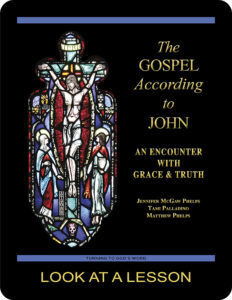life in yourself
 In the Bread of Life discourse recorded in the sixth chapter of the Gospel According to John (NABRE), we encounter a shocking statement made by Jesus and often overlooked in translation.
In the Bread of Life discourse recorded in the sixth chapter of the Gospel According to John (NABRE), we encounter a shocking statement made by Jesus and often overlooked in translation.
In the Gospel According to John 6:53 (NABRE), Jesus teaches: “Amen, amen, I say to you, unless you eat the flesh of the Son of Man and drink his blood, you do not have life within you.” The Greek word translated here as “within you” is ἑαυτοῖς (heautois), a reflexive pronoun that is more literally translated as “within yourselves” in this context.
Reflexive pronouns in English include myself, yourself, himself, herself, itself, ourselves, yourselves, and themselves and are used when the object in a sentence is the same as the subject. For example, “I bought myself a coffee this morning.” Because the person receiving the coffee, me, is the same as the person doing the buying, I, we use the reflexive form myself. Typically, the use of a reflexive pronoun has very little bearing on the meaning of a statement. It would mean the same thing, though sound a little odd, if I didn’t use a reflexive and instead said “I bought a coffee for me this morning.”
With only the context from the Gospel According to John 6:53 (NABRE), it doesn’t seem to matter at all whether we translate the pronoun reflexively. If we consider it in relationship to a passage from the previous chapter of this Gospel, however, we see that the distinction is very important. In the Gospel According to John 5:26 (NABRE), Jesus explains: “For just as the Father has life in himself, so also he gave to his Son the possession of life in himself.” Here Jesus describes the nature of God—having life in yourself—and Jesus describes that life in oneself as shared by the Father with the Son. This is a property unique to God. As people, we have life, but we do not have life in ourselves. We didn’t make ourselves live, and we can’t stop ourselves from dying. We have power over death but do not have power over life.
Within this context, we see more clearly what Jesus is really promising in the Gospel According to John 6:53. Jesus is suggesting that anyone who eats his flesh and drinks his blood assumes an attribute that belongs only to God. He is offering humanity a share in divinity.
related topics: bread of life; “eat my flesh”; “I Am”
you also may like our study of the Gospel According to John
 The Gospel According to John: An Encounter with Grace & Truth, a 25-lesson Catholic Bible study with an imprimatur, examines the Fourth Gospel’s view of Jesus Christ as the Son of God, with special emphasis on the institution of the sacraments of the Church as the means by which Christians are purified and made holy. This recently revised study includes maps and additional commentary, and takes a closer look at the way in which Jesus relates to individual men and women. Click on the book’s cover to view a sample lesson.
The Gospel According to John: An Encounter with Grace & Truth, a 25-lesson Catholic Bible study with an imprimatur, examines the Fourth Gospel’s view of Jesus Christ as the Son of God, with special emphasis on the institution of the sacraments of the Church as the means by which Christians are purified and made holy. This recently revised study includes maps and additional commentary, and takes a closer look at the way in which Jesus relates to individual men and women. Click on the book’s cover to view a sample lesson.
 Click on the picture of the statue of Moses with horns (above) to learn more about Lost in Translation. A new entry is archived each Monday. Contact us to receive Lost in Translation by email every week. You may use any of the contact links on our website to ask Matthew a question.
Click on the picture of the statue of Moses with horns (above) to learn more about Lost in Translation. A new entry is archived each Monday. Contact us to receive Lost in Translation by email every week. You may use any of the contact links on our website to ask Matthew a question.
